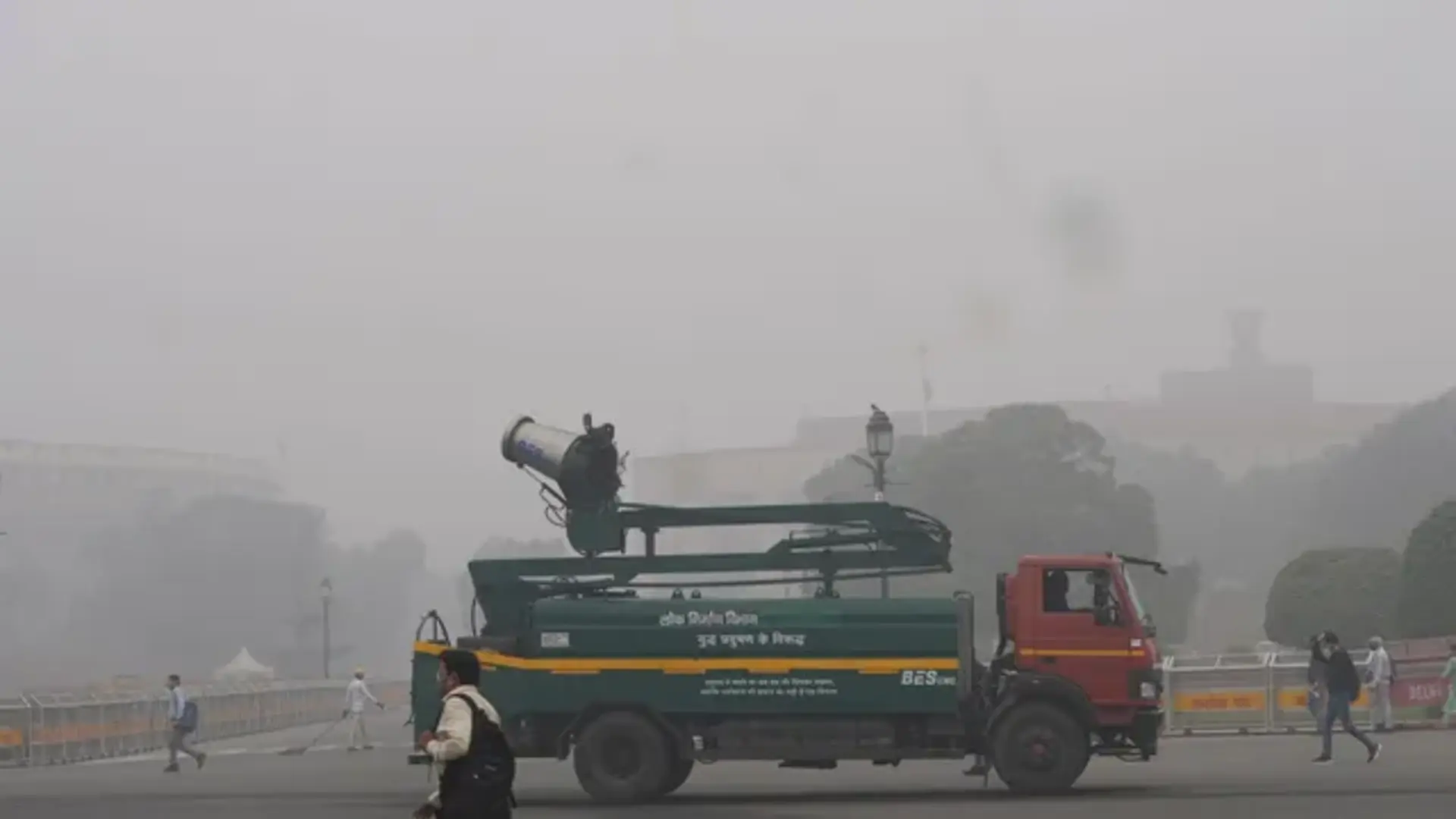
While enlarging on bail an undertrial prisoner who was arrested seven years ago under the Narcotic Drugs and Psychotropic Substances Act, 1985 for his alleged involvement in peddling a prohibited substance, the Supreme Court in a most laudable, learned, landmark, logical and latest judgment titled Mohd Muslim @ Hussain vs State (NCT of Delhi) in Special Leave Petition (Criminal) No. 915 of 2023 and cited in 2023 LiveLaw (SC) 260 that was pronounced finally on March 28, 2023 did not mince any words to hold that a plain and literal interpretation of the rigorous conditions under Section 37 NDPS Act would make granting of bail impossible. The Apex Court also most commendably held that, “Laws which impose stringent conditions for grant of bail, may be necessary in public interest; yet, if trials are not concluded in time, the injustice wrecked on the individual is immeasurable. Incarceration has further deleterious effects where the accused belongs to the weakest economic strata: immediate loss of livelihood, and in several cases, scattering of families as well as loss of family bonds and alienation from society. The courts therefore, have to be sensitive to these aspects (because in the event of an acquittal, the loss to the accused is irreparable), and ensure that trials especially in cases, where special laws enact stringent provisions, are taken up and concluded speedily.” Very rightly so.
While taking the most balanced stand, the Apex Court very rightly held that grant of bail on ground of undue delay in trial is not fettered by Section 37. The Court also inter alia pointed out about the imperative of Section 436A of Code of Criminal Procedure Act which requires inter alia the accused to be enlarged on bail if the trial is not concluded within specified periods. Regarding the applicability to the offences under the NDPS Act, the Apex Court held that special conditions as enacted under Section 37 can only be considered within constitutional parameters when the court is reasonably satisfied on a prima facie look at the material on record that the accused is not guilty. It was also made clear by the Court that a plain and literal interpretation would effectively exclude grant of bail altogether. Further the Apex Court held that the appellant deserves to be enlarged on bail. Appeal allowed.
At the very outset, this brief, brilliant, bold and balanced judgment authored by Hon’ble Mr Justice S Ravindra Bhat for a Bench of the Apex Court comprising of himself and Hon’ble Mr Justice Dipankar Datta sets the ball in motion by first and foremost putting forth in para 1 that, “Special leave granted. With consent of counsel for parties, the appeal was heard finally.”
In hindsight, the Bench recalls in para 2 that, “Long back, in Hussainara Khatoon v. Home Secy., State of Bihar [1979] 3 SCR 1276: (1980) 1 SCC 81 this court had declared that the right to speedy trial of offenders facing criminal charges is “implicit in the broad sweep and content of Article 21 as interpreted by this Court”. Remarking that a valid procedure under Article 21 is one which contains a procedure that is “reasonable, fair and just” it was held that:
“Now obviously procedure prescribed by law for depriving a person of liberty cannot be “reasonable, fair or just” unless that procedure ensures a speedy trial for determination of the guilt of such person. No procedure which does not ensure a reasonably quick trial can be regarded as “reasonable, fair or just” and it would fall foul of Article 21. There can, therefore, be no doubt that speedy trial, and by speedy trial we mean reasonably expeditious trial, is an integral and essential part of the fundamental right to life and liberty enshrined in Article 21. The question which would, however, arise is as to what would be the consequence if a person accused of an offence is denied speedy trial and is sought to be deprived of his liberty by imprisonment as a result of a long delayed trial in violation of his fundamental right under Article 21.””
To recapitulate, the Bench also recalls in para 3 that, “These observations have resonated, time and again, in several judgments, such as Kadra Pahadiya & Ors. v. State of Bihar (1981) 3 SCC 671 and Abdul Rehman Antulay v. R.S. Nayak [1991] Supp. 3 SCR 325: (1992) 1 SCC 225; in the latter the court re-emphasized the right to speedy trial, and further held that an accused, facing prolonged trial, has no option:
“The State or complainant prosecutes him. It is, thus, the obligation of the State or the complainant, as the case may be, to proceed with the case with reasonable promptitude. Particularly, in this country, where the large majority of accused come from poorer and weaker sections of the society, not versed in the ways of law, where they do not often get competent legal advice, the application of the said rule is wholly inadvisable. Of course, in a given case, if an accused demands speedy trial and yet he is not given one, may be a relevant factor in his favour. But we cannot disentitle an accused from complaining of infringement of his right to speedy trial on the ground that he did not ask for or insist upon a speedy trial.””
To put things in perspective, the Bench while co-relating these landmark cases to the case in hand observes in para 4 that, “These issues have pivotal meaning to the facts of this case. The appellant complains that his application for bail ought not to have been rejected by the High Court, in the present case, considering that he has suffered incarceration for over 7 years and the criminal trial has hardly reached the half-way mark. The appellant is accused of committing offences punishable under Sections 20, 25 and 29 of the Narcotic Drugs and Psychotropic Substances Act, 1985 (hereafter ‘NDPS Act’). His application under Section 439 read with Section 482 of the Criminal Procedure Code (hereafter ‘CrPC’), seeking grant of regular bail, before the Delhi High Court, was denied by the impugned judgment (Order dated 08.09.2022 in Bail Application No. 2675/2022.). Some other facts important to the decision in this case, are that at the time of his arrest, the appellant was 23 years. He was not found in possession of the narcotic drug; other co-accused were.”
Be it noted, the Bench notes in para 17 that, “The facts in this case reveal that the recovery of ganja was made on 28.09.2015, from the four co-accused, including Nitesh Ekka. The present appellant was arrested at the behest, and on the statement of this Nitesh Ekka. The prosecution has relied on that statement, as well as the confessional statement of the present appellant; in addition, it has relied on the bank statements of Virender Singh @ Beerey, who allegedly disclosed that money used to be transferred to the appellant. As against this, the prosecution has not recovered anything else from the appellant; its allegation that he is a mastermind, is not backed by any evidence of extensive dealing with narcotics, which would reasonably have surfaced. The prosecution has not shown involvement of the appellant, in any other case. Furthermore, he was apparently 23 years of age, at the time of his arrest. It is an undisputed fact that two co-accused persons (who also, were not present at the time of raid and from whom no contraband was recovered) – the accused (Virender Singh @ Beerey) who allegedly transferred money to the appellant’s account as payment for the ganja, and the accused (Nepal Yadav @ Tony Pahalwan) from whom the original insurance papers and registration certificate of the car from which contraband was seized, was recovered (As per the counter-affidavit dated 21.02.2023 filed by the respondent-state before this court.) have both been enlarged on bail. The appellant has been in custody for over 7 years and 4 months. The progress of the trial has been at a snail’s pace: 30 witnesses have been examined, whereas 34 more have to be examined.”
Most remarkably, the Bench propounds in para 18 that, “The conditions which courts have to be cognizant of are that there are reasonable grounds for believing that the accused is “not guilty of such offence” and that he is not likely to commit any offence while on bail. What is meant by “not guilty” when all the evidence is not before the court? It can only be a prima facie determination. That places the court’s discretion within a very narrow margin. Given the mandate of the general law on bails (Sections 436, 437 and 439, CrPC) which classify offences based on their gravity, and instruct that certain serious crimes have to be dealt with differently while considering bail applications, the additional condition that the court should be satisfied that the accused (who is in law presumed to be innocent) is not guilty, has to be interpreted reasonably. Further the classification of offences under Special Acts (NDPS Act, etc.), which apply over and above the ordinary bail conditions required to be assessed by courts, require that the court records its satisfaction that the accused might not be guilty of the offence and that upon release, they are not likely to commit any offence. These two conditions have the effect of overshadowing other conditions. In cases where bail is sought, the court assesses the material on record such as the nature of the offence, likelihood of the accused co-operating with the investigation, not fleeing from justice: even in serious offences like murder, kidnapping, rape, etc. On the other hand, the court in these cases under such special Acts, have to address itself principally on two facts: likely guilt of the accused and the likelihood of them not committing any offence upon release. This court has generally upheld such conditions on the ground that liberty of such citizens have to – in cases when accused of offences enacted under special laws – be balanced against the public interest.”
Most significantly, the Bench then sagaciously minces absolutely no words to hold in para 19 that, “A plain and literal interpretation of the conditions under Section 37 (i.e., that Court should be satisfied that the accused is not guilty and would not commit any offence) would effectively exclude grant of bail altogether, resulting in punitive detention and unsanctioned preventive detention as well. Therefore, the only manner in which such special conditions as enacted under Section 37 can be considered within constitutional parameters is where the court is reasonably satisfied on a prima facie look at the material on record (whenever the bail application is made) that the accused is not guilty. Any other interpretation, would result in complete denial of the bail to a person accused of offences such as those enacted under Section 37 of the NDPS Act.”
Broadly speaking, the Bench envisages in para 20 that, “The standard to be considered therefore, is one, where the court would look at the material in a broad manner, and reasonably see whether the accused’s guilt may be proved. The judgments of this court have, therefore, emphasized that the satisfaction which courts are expected to record, i.e., that the accused may not be guilty, is only prima facie, based on a reasonable reading, which does not call for meticulous examination of the materials collected during investigation (as held in Union of India v. Rattan Malik (2009) 2 SCC 624). Grant of bail on ground of undue delay in trial, cannot be said to be fettered by Section 37 of the Act, given the imperative of Section 436A which is applicable to offences under the NDPS Act too (ref. Satender Kumar Antil supra). Having regard to these factors the court is of the opinion that in the facts of this case, the appellant deserves to be enlarged on bail.”
Most pragmatically, the Bench then enunciates in para 21 that, “Before parting, it would be important to reflect that laws which impose stringent conditions for grant of bail, may be necessary in public interest; yet, if trials are not concluded in time, the injustice wrecked on the individual is immeasurable. Jails are overcrowded and their living conditions, more often than not, appalling. According to the Union Home Ministry’s response to Parliament, the National Crime Records Bureau had recorded that as on 31st December 2021, over 5,54,034 prisoners were lodged in jails against total capacity of 4,25,069 lakhs in the country (National Crime Records Bureau, Prison Statistics in India.). Of these 122,852 were convicts; the rest 4,27,165 were undertrials.”
Most touchingly, the Bench hastens to add in para 22 pointing out that, “The danger of unjust imprisonment, is that inmates are at risk of “prisonisation” a term described by the Kerala High Court in A Convict Prisoner v. State 1993 Cri LJ 3242 as “a radical transformation” whereby the prisoner:
“loses his identity. He is known by a number. He loses personal possessions. He has no personal relationships. Psychological problems result from loss of freedom, status, possessions, dignity any autonomy of personal life. The inmate culture of prison turns out to be dreadful. The prisoner becomes hostile by ordinary standards. Self-perception changes.””
Most emphatically, while highlighting the deleterious effects of incarceration, the Bench underscores in para 23 holding that, “There is a further danger of the prisoner turning to crime, “as crime not only turns admirable, but the more professional the crime, more honour is paid to the criminal” (Working Papers – Group on Prisons & Borstals – 1966 U.K.) (also see Donald Clemmer’s ‘The Prison Community’ published in 1940). Incarceration has further deleterious effects – where the accused belongs to the weakest economic strata: immediate loss of livelihood, and in several cases, scattering of families as well as loss of family bonds and alienation from society. The courts therefore, have to be sensitive to these aspects (because in the event of an acquittal, the loss to the accused is irreparable), and ensure that trials – especially in cases, where special laws enact stringent provisions, are taken up and concluded speedily.”
Finally and as a corollary, the Bench then concludes by directing in para 24 that, “For the above reasons, the appellant is directed to be enlarged on bail, subject to such conditions as the trial court may impose. The appeal is allowed, in the above terms. No costs.”
In sum, it would certainly not tantamount to an exaggeration if I say that all the Judges of District Courts and so also of the High Courts must definitely read this judgment most carefully and always unflinchingly abide by it in letter and spirit. It also merits no reiteration that bail should always be the rule and jail should be only a rare exception in such cases as was propounded by eminent former Supreme Court Judge and jurist Justice VR Krishna Iyer. It can also be inferred from this notable judgment that Judges should desist from making a plain and literal interpretation of Section 37 NDPS Act as that would make bail impossible. No doubt, the accused definitely has a right of presumption of innocence and Judges also while ruling must undoubtedly keep it in back of their mind as to the deleterious impact of long incarceration of the accused in jail of offences under Section 37 of the NDPS Act which ruins his/her life and only serves in making him/her a professional criminal which can never the long term interest of either the accused or of the society at large!














